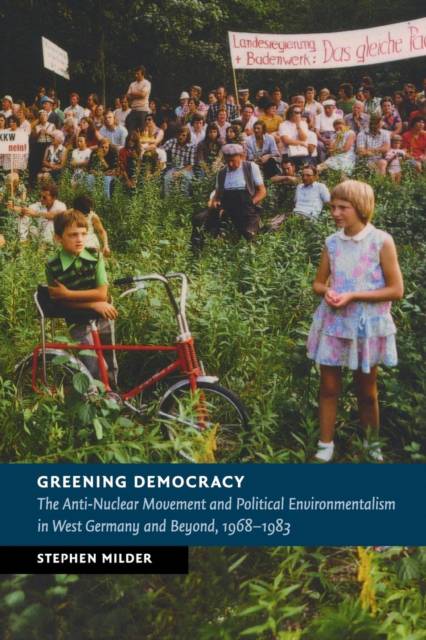
- Afhalen na 1 uur in een winkel met voorraad
- Gratis thuislevering in België vanaf € 30
- Ruim aanbod met 7 miljoen producten
- Afhalen na 1 uur in een winkel met voorraad
- Gratis thuislevering in België vanaf € 30
- Ruim aanbod met 7 miljoen producten
Zoeken
Greening Democracy
The Anti-Nuclear Movement and Political Environmentalism in West Germany and Beyond, 1968–1983
Stephen Milder
€ 60,95
+ 121 punten
Uitvoering
Omschrijving
Greening Democracy explains how nuclear energy became a seminal political issue and motivated new democratic engagement in West Germany during the 1970s. Using interviews, as well as the archives of environmental organizations and the Green party, the book traces the development of anti-nuclear protest from the grassroots to parliaments. It argues that worries about specific nuclear reactors became the basis for a widespread anti-nuclear movement only after government officials' unrelenting support for nuclear energy caused reactor opponents to become concerned about the state of their democracy. Surprisingly, many citizens thought transnationally, looking abroad for protest strategies, cooperating with activists in other countries, and conceiving of 'Europe' as a potential means of circumventing recalcitrant officials. At this nexus between local action and global thinking, anti-nuclear protest became the basis for citizens' increasing engagement in self-governance, expanding their conception of democracy well beyond electoral politics and helping to make quotidian personal concerns political.
Specificaties
Betrokkenen
- Auteur(s):
- Uitgeverij:
Inhoud
- Aantal bladzijden:
- 298
- Taal:
- Engels
- Reeks:
Eigenschappen
- Productcode (EAN):
- 9781316501061
- Verschijningsdatum:
- 28/03/2019
- Uitvoering:
- Paperback
- Formaat:
- Trade paperback (VS)
- Afmetingen:
- 152 mm x 229 mm
- Gewicht:
- 403 g

Alleen bij Standaard Boekhandel
+ 121 punten op je klantenkaart van Standaard Boekhandel
Beoordelingen
We publiceren alleen reviews die voldoen aan de voorwaarden voor reviews. Bekijk onze voorwaarden voor reviews.











